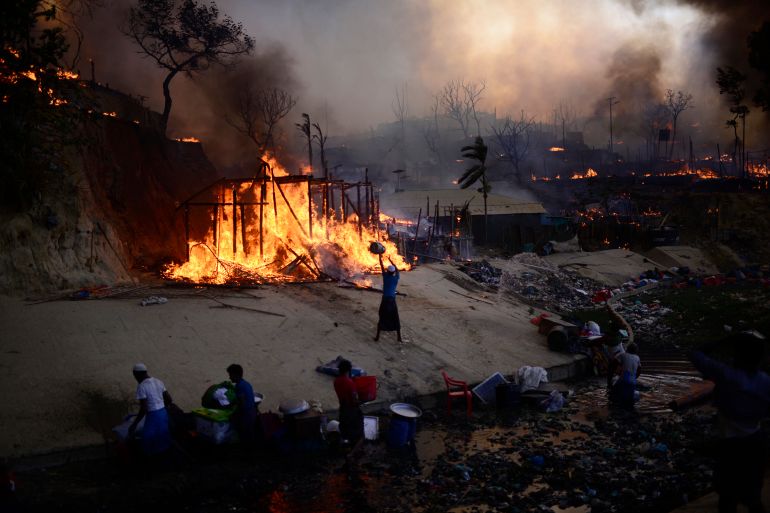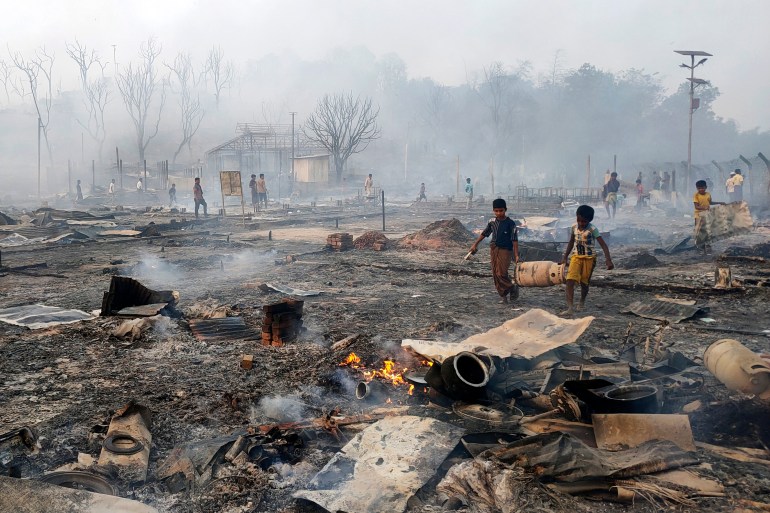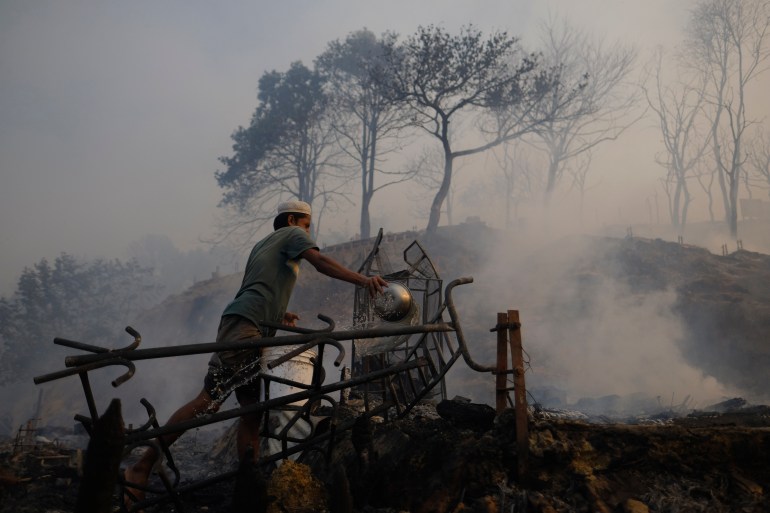Fire at Rohingya camps ‘planned sabotage’, Bangladesh panel says
Officials say the March 5 blaze broke out in several places at the same time, proving it was a planned act.

A fire that left thousands of Rohingya refugees homeless in Bangladesh camps was a “planned act of sabotage”, says a panel investigating the blaze.
Nearly 2,800 shelters and more than 90 facilities, including hospitals and learning centres, were destroyed in the fire on March 5, leaving more than 12,000 people without shelter, officials said.
Keep reading
list of 4 itemsPhotos: Fire hits Rohingya refugee camp in Bangladesh
A rare look inside Bangladesh’s island camp for Rohingya refugees
Concerns mount over UN food aid cut for Rohingya in Bangladesh
More than a million Rohingya live in tens of thousands of huts made of bamboo and thin plastic sheeting in camps in the border district of Cox’s Bazar, most having fled a military-led crackdown in Myanmar in 2017.

“The fire was a planned act of sabotage,” senior district government official Abu Sufian, head of a seven-member probe committee, told Reuters news agency by phone from Cox’s Bazar on Sunday.
He said the blaze broke out in several places at the same time, proving it was a planned act. He said it was a deliberate attempt to establish supremacy inside the camps by community-based gangs. He did not name the groups.
“At least five places caught fire within a short period of time. […] The day before the fire, there were shootings and clashes over dominance in that camp. Some people in the camps restricted refugees from dousing it, allowing the fire to burn the shelters,” Sufian said.
Residents said the incident is a sign of a growing turf war between the gangs in the world’s largest refugee camp.
“We recommended further investigation by the law-enforcing agency to identify the groups behind the incident,” he said, adding that the report was based on input from 150 witnesses.
The panel also recommended the formation of a separate fire service unit for the Rohingya camps. Each block of Rohingya camps needs to be widened to accommodate fire service vehicles and the construction of water cisterns, and the camps should use less flammable materials in shelters, among other recommendations.

Mohammed Rezuwan Khan, a refugee rights activist in the camp, said the fire “was not accidental, but intentional – set by one of the gangs”.
“The gangs, so-called freedom fighters, from within Rohingya have been taking advantage of our vulnerability … They don’t want us to survive peacefully as there are masterminds from overseas behind them,” he said.
Fires often break out in the crowded camp with its makeshift structures. A massive blaze in March 2021 killed at least 15 refugees and destroyed more than 10,000 homes.
Surging crime, difficult living conditions and bleak prospects for returning to Myanmar are driving more Rohingya to leave Bangladesh by boat for countries like Malaysia and Indonesia, putting their lives at risk.
United Nations data shows 348 Rohingya are thought to have died at sea in 2022 – one of the deadliest years for the mostly Muslim refugees.